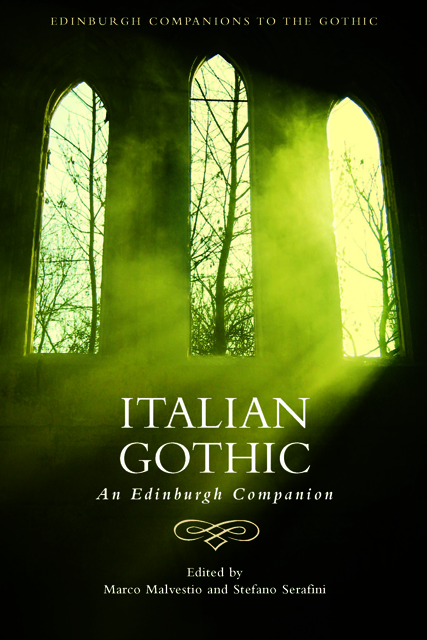11 - Gothic Music
Published online by Cambridge University Press: 20 October 2023
Summary
In Italian music, the Gothic (meaning a musical style as well as an aesthetic category, variously dealing with the macabre, the lugubrious, the excessive and the occult) has assumed several different forms over the decades, from progressive rock to the recent wave of Italian Occult Psychedelia and different styles of Metal – Heavy, Doom, Black. These underground manifestations were seldom visible in Italian mainstream culture (in which, however, references to Gothic themes, albeit ironic, are not uncommon; Camilletti 41) and often had English lyrics in order to reach an international audience. Many of the bands in question, as we will see, come from provincial parts of Italy, rather than metropolitan centres, which illustrates the marginality and underground status of this current in Italian music. At the same time, by continuously presenting intermedial references, the different manifestations of the Gothic in Italian culture represent a long-standing element of disturbance and testify to the wide and persistent interest in these themes and styles.
Defining the Gothic in music is not a simple task. While there is a specific ‘goth’ current in contemporary alternative music, the influence of the Gothic cannot be limited to that particular form; rather, it needs to be investigated in a variety of genres and subcultures. Most importantly, the Gothic in music is not limited to lyrics and sound; it also manifests itself in several acts of self-fashioning that range from stage costumes to the use of make-up, from album covers to the interior design of clubs and venues. Before the explosion of the Gothic subculture in the 1980s, several bands were labelled as Gothic, from The Doors (in 1967, music critic John Stickney called their style ‘Gothic rock’) to The Velvet Underground and Nico, the latter's solo work and the Shock-rock of Alice Cooper. Nevertheless, these bands do not belong to the Gothic subculture in the strictest sense.
Gothic influences in contemporary alternative music manifest themselves in two main ways. Firstly, the term ‘Gothic’ (or ‘goth’) is used to describe Post-Punk bands such as The Cure, Siouxsie and the Banshees, Bauhaus, The Sisters of Mercy and Joy Division.
- Type
- Chapter
- Information
- Italian GothicAn Edinburgh Companion, pp. 167 - 182Publisher: Edinburgh University PressPrint publication year: 2023

